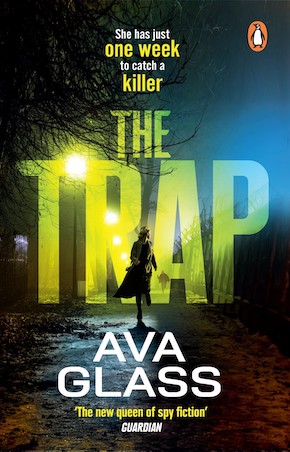Pulling it all together
by Ava Glass
Writing has always been my thing. Back when I was a crime reporter in the US, picking my way across murder scenes and figuring out how to get blood out of my shoes, I was there because I wanted to write. And when I worked in communications for the British government, trying to persuade spies to talk to the public, I was there to write.
Now as an author of espionage fiction, I write about a spy named Emma Makepeace, a globe-trotting British agent who works for an organisation so secret it doesn’t even have a name. This merges crime and politics, and allows me to pull all of my previous experience together – the travel, the spies, the crimes. It’s as if I was always meant to write these books. Everything else I’ve done has brought me here to this series, at this time.
After writing fifteen novels under multiple author names, published by three of the big five publishing houses, here are ten things I’ve learned about writing…
—
1. Read, read, read, and read some more
You cannot be a good writer without also being a voracious reader, and don’t listen to anyone who tells you otherwise.
2. Write everything down
If you’re on a train and spot someone interesting, do a quick character sketch. What makes them tick? What’s their life like? Soon you’ll have a bank of fully formed characters to populate your stories.
3. Figure out when you write best and guard that time zealously
For me, it’s the afternoon, so in the mornings I take meetings, make calls, and attempt to get a handle on my overflowing inbox. But come midday, notifications are off, the door is closed, and I get down to the real work of making things up.
4. Even if you think it’s bad, keep going
80% of everyone’s first draft is rubbish. It’s always awful, so don’t be afraid of writing something imperfect. Just get it down on paper. Worry about making it better later on.
5. Find a great editor and let them do their thing
Editors are unsung heroes who take a misshapen lump of a draft and polish it into a diamond. A good editor will make your work ten times better. For unpublished authors, that editor might be your spouse or partner, or a writer friend. But get their honest feedback and work with that.
6. Learn the rules – and know when to break them
Absorb the lessons from the greats, from Stephen King’s seminal On Writing to Annie Dillard’s Pulitzer Prize-winning The Writing Life, but realise that their advice might not work for you. King may say that “the road to hell is paved with adverbs”, but even he uses them occasionally and beautifully.
7. Let fiction be fiction*
“Write what you know” is sound advice, but it’s also important to remember that what you don’t know, you can make up.
*And then refer to point 5 about finding a great editor.
8. If it’s not essential, cut it
You’re asking people to give up their time to read your book, so make it worth their while. Every single word should earn its place. If it doesn’t really help the book, get rid of it.
9. Don’t neglect the practicalities
I know, you’re a creative, trivial things like “backing up your work” and “sorting out your pension” seem unimportant. But they’re not. In the long run, having your life under control will give you more space, time and energy for writing.
10. And finally, the most important tip of all…
I cannot emphasise this one enough. Here it is; ready? Stretch your back. You only get one body, and once it’s gone, it’s gone. Do it. Have a stretch. Do it now.
—

Ava Glass is the CWA Dagger-shortlisted author of Alias Emma (The Chase) and The Traitor. The Traitor was a 2023 Richard and Judy Bookclub pick and a Barnes and Noble book of the month. A former civil servant and journalist, Ava once worked closely with spies. Her time in that world fascinated her, and the spies she met back then inspire every book she writes. The Trap, her third Emma Makepeace novel, is published by Penguin in paperback, eBook and audio download.
Read more
avaglass.uk
@avaglassbooks
@PenguinUKBooks
Author photo by Jack Jewers

